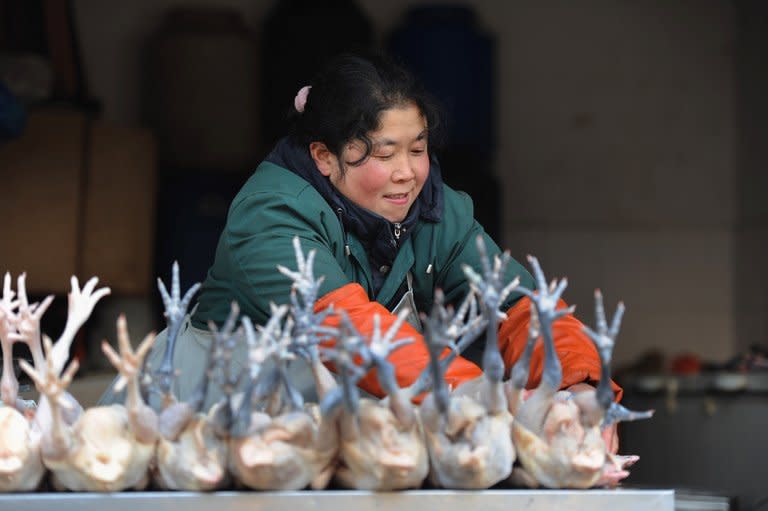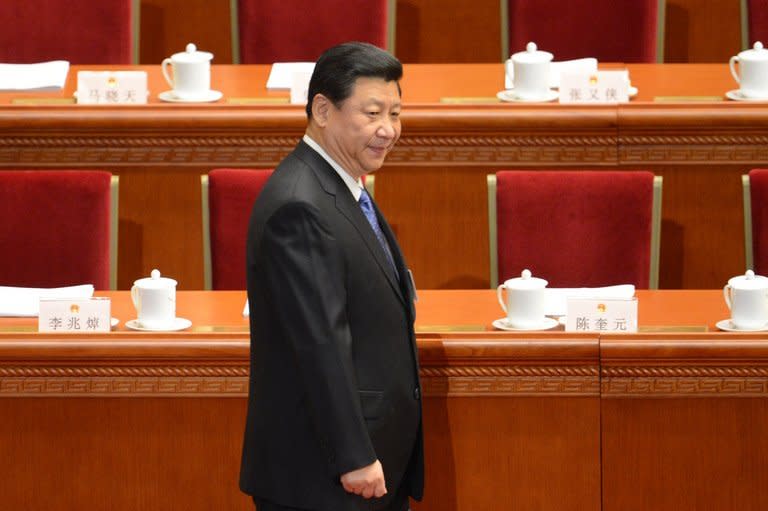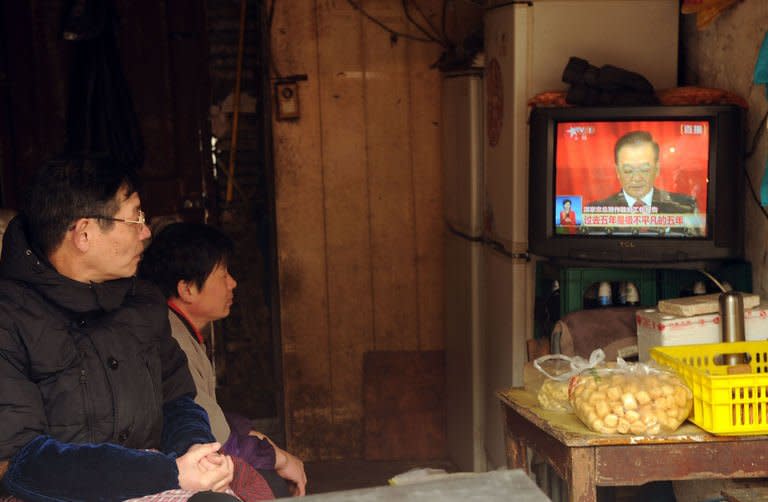China inflation spikes, factory output growth slows
Chinese inflation hit a 10-month high in February while growth in industrial production and retail sales slowed, official data showed on Saturday, complicating policymakers' efforts to boost recovery. Growth in the world's second-largest economy slowed to a 13-year low of 7.8 percent in 2012, though a pick-up in the final three months had raised hopes for a rebound this year. The consumer price index -- a main gauge of inflation -- rose 3.2 percent year-on-year in February, according to the National Bureau of Statistics (NBS), as holiday season spending and rapid credit growth accelerated price rises. The figure was a spike from January's 2.0 percent and the highest result since April 2012, when it stood at 3.4 percent. It was also above the median forecast of 3.0 percent in a poll of 14 economists by Dow Jones Newswires. Inflation is a key issue for the ruling Communist Party as it brings with it the risk of popular discontent over rising prices and the threat of social unrest. Other indicators announced Saturday by the NBS provided further signs that a budding recovery may be fragile. "The Chinese government is caught in the dilemma of dealing with slower growth and yet higher inflation again," Ren Xianfang, a Beijing-based analyst with research firm IHS Global Insight, said in a research note. Industrial output, which reflects production at China's factories, workshops and mines, rose 9.9 percent year-on-year over the first two months of 2013, compared with 11.4 percent in the same period of 2012. Retail sales -- the main gauge of consumer spending -- were up 12.3 percent over the period, slowing from 14.7 percent in the January-February period of last year. Giving the figures for the two-month period minimised distorted comparisons due to the Lunar New Year, which fell last month this year but in January for 2012. Fixed-asset investment -- a key measure of official spending on infrastructure -- rose 21.2 percent in January-February, higher than the 20.6 percent for the full year of 2012 and underscoring what analysts say is an old-fashioned recovery led by fast investment growth. "Such a recovery is predicated on relatively accommodative monetary policy conditions," ANZ analysts said in a research note. "And it could falter once monetary policy becomes tight on concerns of rising risks of inflation and (a) property bubble." Chinese banks more than doubled their lending in January from December, the latest official data available showed, as the government seeks to boost economic growth. Last year, authorities cut interest rates twice and loosened requirements for how much money banks must keep on hand in a bid to stimulate lending. Outgoing Chinese Premier Wen Jiabao on Tuesday announced an economic growth target of 7.5 percent for 2013 -- the same as last year's -- and reiterated the government's vow to retool the economy away from investment-led growth. Wen also said that the 2013 inflation target was set at 3.5 percent, lower than last year's goal of 4.0 percent, but higher than the actual inflation rate for 2012, which came in at 2.6 percent. "China is still under considerable inflationary pressure this year," he said in a report to the opening of the National People's Congress, China's annual parliamentary session. Analysts said Beijing faced a delicate job to strike a balance between curbing asset bubbles, highlighted by rising property prices, and consolidating the recovery. "That means very little room for the government to wiggle on the monetary policy front, and the burden of stabilising growth will be borne by fiscal largesse this year," IHS Global Insight's Ren said. Some analysts, however, downplayed concerns, arguing inflation was not an imminent threat and that it was premature to embrace tightening measures. "CPI inflation is a potential concern, but is surely not a big threat now to force the government to start an imminent policy tightening," Bank of America Merrill Lynch analysts said in a note. "The new cabinet... will likely maintain its overall pro-growth policy stance in the first half of 2013."




